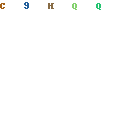Social media often makes the headlines as a revolutionary
new form of technological communication, a wild place where anonymous avatars
troll everybody, teens sext and rioters plot and plan. It's a scary place out
there.
But is social media actually that that fundamentally
different to what came before?
I'm not saying it hasn't impacted society, I am sure it has.
Combined with 24 hour news and the rise of citizen journalists, social media
has sped up the world. Where as you used to get the news the next morning in
the paper, now we see it unfolding live on Twitter. It has also shrunk the
world. In an instant I can chat with a friend who is skiing in the Alps, help
someone write a report in Brazil, discuss political representation with a former
MP now in the US and see picture being taken in SPACE! (You simply have to
follow
@Cmdr_Hadfield)
But I could have done all this 30 years ago, only it would
have taken a lot longer and been infinitely more expensive.
Let's look at an example that really caught the public
imagination. The Riots across London and other cities in 2011 brought the use
of social media into the spotlight. BBM, Twitter and Facebook were all
implicated in being in part responsible for what happened, because without them
people could never have organised the violence. Yet, Mark Zuckerberg wasn't even a glint in his father's eye in 1981 during the Brixton Riots and I'm pretty sure Wat Tyler wasn't live-tweeting the Peasants' Revolt in 1381. So why all the fuss about social media?
 |
| #PeasantsAreRevolting |
I see the same in the church (its view of social media, not
mass uprising...). You can find all kinds of blogs and seminars on 'how to be a
Christian on Twitter'. I may have even
written about it myself before... Maybe
it's because I am one of the social media generation, but I act the same on Twitter
as I do in 'the real world' (I don't like the real world/online world
splitting, but that's another story). I respect people, I try and be polite, I
debate, I choose not to engage with some people.
Far from being a den of evil, social media is great! I can
engage with conferences and events I'm not at, and I can share my thoughts with
other people. I was recently at Inspire, the Lancashire Methodist District day
conference, and saw this tweet.
This is something I have often come up against. But for me,
summing up a view in 140 characters helps me think about it, it proves me with
a archive to look back at later, and maybe more valuably, it adds a second
layer of discussion to an event. The same thing happens at Methodist
Conference; there is the debate going on between the 300-odd people on the
conference floor, and then the debates going on between many hundreds of people
both there and around the country, even the world. This is true 'connexion'.
So that is why I love social media, and I've not even
touched on the great power of social media for campaigning. There are people
who write much more eloquently and scholarly about Social Media than this
rambling blog (thinking of you
@vickybeeching), but as a member of the social
media generation, I'm just putting my thoughts out there.
- please comment on here, on Facebook or on
Twitter, or by letter if you're not a fan of social media.
- Why is social media seen as something so radically different?
- Is social media inherently good or bad? Or, like a hammer, is it a tool that
can be used for either?
- Should I blog about why I don't like the 'online/real world' dichotomy?
